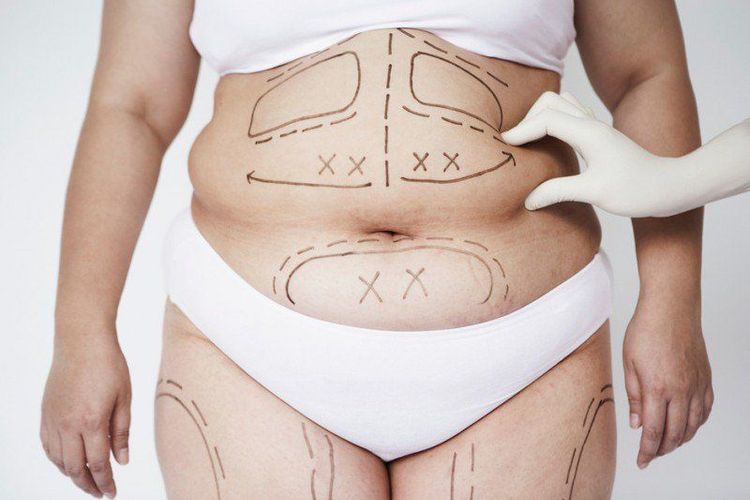This is an automatically translated article.
The article is professionally consulted by the Emergency Medicine Doctor - Emergency Resuscitation Department - Vinmec Phu Quoc International General Hospital.
Obesity is a chronic disease caused by an imbalance between calories taken in and energy consumed. The cause of the disease is multifactorial, including heredity, environment, and behavioral influences.
1. Measure body mass index (BMI) to determine obesity
Obesity can be measured by body mass index (BMI), which is weight in kilograms divided by the square of height in meters (Kg/m2). BMI over 27kg/m2 (> 27.8 kg/m” for men; > 27.3 kg/m” for women) is considered obese.
BMI = Weight (kg) / Height (m) x Height (m)
People with obesity have a high risk of diseases such as hypertension, dyslipidemia, insulin resistance and hyperinsulinemia .

Dựa vào chỉ số BMI để đánh giá mức độ béo phì
2. Causes of obesity
Up to now, the causes of obesity are still being considered and the evolution is extremely complicated. However, most discussions assume that factors such as: heredity, diet, living habits... all interact with each other to cause disease.
The direct factor leading to obesity is that the amount of heat absorbed into the body is higher than the amount of heat lost, leading to the accumulation of too much body fat.
3. Treatment of obese patients
Treatment of obesity is a long process that includes: Diet, exercise, medication or surgical options.
3.1 Diet and exercise
Changing living habits, increasing body energy consumption by increasing physical activity, playing sports, walking daily, on average (walking) at least 30 minutes a day also ensures energy consumption and health benefits.
Fitness is a key component of any weight loss program. It improves health and well-being, which are critical to long-term success.
Limit eating foods with a lot of energy such as: Fat, fatty meat, eggs, seafood
Limit alcohol, tobacco, soft drinks Limit fast food Eat more vegetables, fruits Diet, eat less more calories or increase calorie consumption.

Tăng cường bổ sung rau xanh vào chế độ ăn uống giúp giảm nguy cơ béo phì
3.2 Use of drugs
Currently on the market there are many types of weight loss treatment drugs. To ensure health, you should use weight loss pills when prescribed by a doctor, combined with a full-fledged diet, do not use drugs indiscriminately and without science.
3.3 Surgery
Surgery is also a procedure to treat obesity, although surgery is limited as a comprehensive treatment, with significant psychological and physiological consequences. Therefore, before deciding to perform surgery, you need to have a psychological diagnosis as well as good health, choose the basis as well as advanced treatment methods, to avoid bringing unfortunate risks.

Phẫu thuật nhằm điều trị béo phì cần được cân nhắc kĩ lưỡng
4. Caring for obese patients
Change the habit of forgetting to cook, preferring to use cooking methods such as steaming, boiling. Limit fast or fried foods. Limit the intake of sweets and drinks with a lot of sugar. Limit starches; instead eat safe starches such as brown rice, sweet potatoes, and whole grains. Drink at least 2 liters of water per day The main meal is breakfast, limit starches in the evening and can be replaced with fiber such as vegetables, tubers and fruits. In addition to diet, it should be combined with daily exercise. At first, you can choose gentle exercises, after a while you can increase the level of exercise for a longer time.

Những người béo phì nên duy trì chế độ tập luyện thường xuyên
In summary, the most successful long-term treatment for obesity is the adjustment of diet and activities combined with daily exercise. Treatment of obesity requires the patient to be patient.
Please dial HOTLINE for more information or register for an appointment HERE. Download MyVinmec app to make appointments faster and to manage your bookings easily.
MORE
Obesity and what you need to know Why do obese people need to be screened for coronary heart disease? Nutrition for overweight and obese adults











